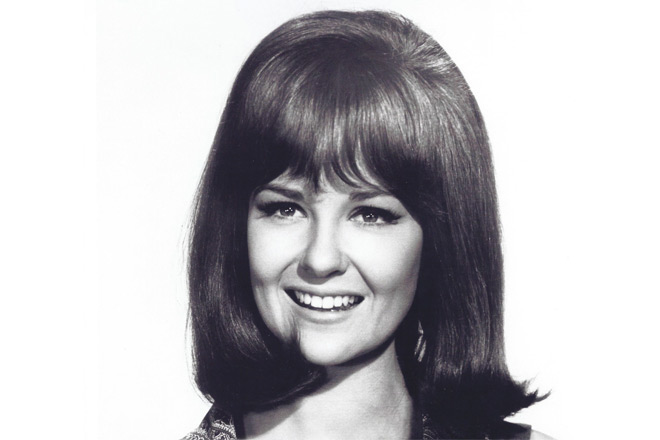
Starting at a young age, Fabares is most famously recognized for her role as Donna Reed’s daughter Mary Stone in The Donna Reed Show. An iconic, historic piece of American entertainment history, The Donna Reed Show kept Fabares in the spotlight of American television viewers for eight years. An amazing opportunity for the young actress, and many unexpected events unfolded as a result; including Fabares’ attaining a Number 1 hit song in 1962 with “Johnny Angel.” Only the tip of the iceberg when discussing her success, Shelley Fabares herself recently took the time to sit down for a thoughtful recollection of her career in television/film, working in music, plus so much more.
Cryptic Rock – You began your career in entertainment quite young and had a lot of success in those early years. You went on to The Donna Reed Show, among many other things. Before we dive into everything, how would you describe your incredible journey in entertainment?
Shelley Fabares – Well, you’re right. I have been working for a long time. I started modeling. My sister and I both started modeling when I was three, and my sister was six. We had been doing it forever. I guess I would say that if I had a child, I would not let the child work, because it’s very hard.
It’s a hard business for adults to be in as well; you get all the knocks that come your way, and the pleasurable things that come your way too. It’s very hard to get used to and to try to keep some sense of normality when they’re saying “No, thank you. Please close the door as you leave.” It’s just impossible to not take it personally; because what they were looking at was you and either trying to do a scene or something, but whatever it was, it wasn’t right. I think that is the part, for adults and for children, which is very hard.
To have somebody, in essence, look at you and for whatever their reasons to say, “No, thank you.” Sometimes they’d say, “Oh, we wanted somebody with blonde hair,” and yours at the time is darker. Those are just some of the things that happened that kind of wound you at the time. Luckily, my mother, father, and sister were around me all the time.
My mother always had a level-eyed view of what it was like for a child. She had never worked when she was a child at all, but she got the gist of what this was like. I don’t know if anybody is normal, I don’t know what normal is, but she had me stay with the strengths that I had as a person and even some of the wounds that I had as a person. I was really lucky to have my parents that I did, and they worked very hard to keep me away from some of the dangerous spots of working in movies. That’s the story of my beginnings working.
Cryptic Rock – It all sounds very compelling. To your point, it has to be hard on a young person, or even an adult. You are constantly on a roller coaster of highs and lows. There is a lot of emotion. There are lows and highs, and there are probably some high highs, but some low lows.
Shelley Fabares – Yes, that’s exactly right. The highs are fun and wonderful. Depending on the age that I was; it got a little more sophisticated when I got a little bit older. But yes, it is what I was referring to earlier why I would never let a child of mine work. Even though my personal experiences were very good, I was very lucky that way. I worked with wonderful people.
Of course, the main group of people I worked with were the people on The Donna Reed Show. We did that for nine years. We really did become a family, the four of us doing the show. Donna was just an incredible woman. She was certainly a gifted actress and did a lot of work. She was very protective of us also. I just was incredibly lucky with the people that I came in contact with for the most part on The Donna Reed Show.
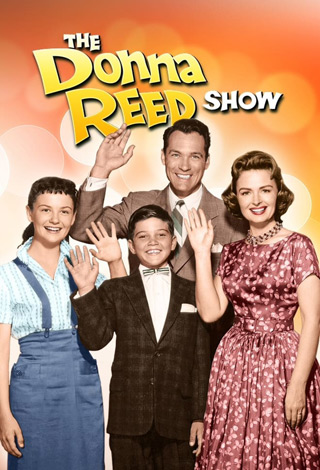
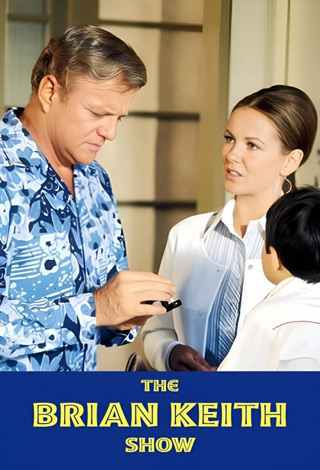
Cryptic Rock – That is a very positive thing. The Donna Reed Show became an iconic television show. Even after running originally from 1958 to 1966, it still was shown on Nick at Nite in the decades to follow. To this day, The Donna Reed Show still has a life where different generations can discover and enjoy it. How do you feel about that?
Shelley Fabares – It’s a thrilling happenstance. I am amazed. As I went through the years, and when I was doing the show, and then after the show was over, it was hard for me to understand. I don’t want to sound utterly naive about it, but we were so kept isolated, not meanly so, but we were working for 39 episodes a year and going to school at the same time. We were very, very isolated.
Paul Peterson (who played my brother, Jeff Stone) and I, talked about a lot of things over the nine years. He was doing an interview one time, and I happened to be sitting there listening to it. He was saying that it was very hard to just make that adjustment.
You were working and not going to school with anybody else, and then you were working, but going to school with some of your classmates. It was a strange experience. I didn’t know at the time that it was strange. It was what I knew. You don’t know what you don’t know at the time. I loved doing it though. I loved Donna, Carl (Betz), Paul (Petersen), and myself being together. As I said earlier, it really was family.
I know a lot of people who are on shows for long runs say that. I believe them, but that’s because I had the experience of being with a very tight-knit group.
Cryptic Rock – Most certainly. It really is a phenomenal thing, and it is exciting to hear that it was such a great experience for you. What is interesting about The Donna Reed Show is that it fell into something else, and that is music. You had a song, “Johnny Angel,” which premiered on the show and became this huge hit. That launched a musical career for you. That had to be unexpected. What was that like?
Shelley Fabares – Yes. Unexpected would be the way to put that. This was at the time when Rick Nelson, at the time he was Ricky Nelson, was singing songs on his show, The Adventures of Ozzie and Harriet. He was so beautiful and so handsome. He just was made to be a Rock-n-Roll singer or singer of some sort.
When they did the scripts for the show, they had him, after some time, singing in every episode; whether it had part of the story built around it or not. They would finish the show and then Rick would come out and do one or two songs at the end of the show. The people producing our show happened to be Donna Reed and her husband at that time, Tony Owen. They came to Paul Peterson and I and said, “We’ve got a great idea. Rick Nelson is singing all of his songs, and we have two teenagers right here, Paul and Shelley. Here they are. We can write a show around the song and, you know, and we’ll see what happens.”
I was passing out with fear when he said that. I was raised at a time when you didn’t say to your parents or your authority figures, “I’m sorry. That’s a good idea, but I can’t do it.” But that’s what I said to him. I was so terrified. I said, “Mr. Owen, you’re right. That is a very good idea. But I’ll tell you this, I can’t do it, because I can’t sing.” Pointing at Paul, I said, “Paul here can do anything. He can sing, he can dance, and act. He’s wonderful, and he’s fearless. He’ll do it for sure.” As I recall, at some level, Paul was shaking his head “Yes.”
Anyway, weeks would go by and nothing happened. Every day, that was pleasurable. As I said, it was not a time when you told the adults in your life that what they were suggesting wasn’t a good idea and that you didn’t want to do it. I would have been willing to do almost anything but sing a song on television in front of millions of people. As I talk about it, I get nervous all over again thinking about what I went through and having to do this.
We were doing the show for Screen Gems, which was the television arm of Columbia Pictures. Tony came up to me one day. He said, “I understand there are some problems that you don’t want to sing.” I said, “Oh, yes, Mr. Owen. That’s right.” I chose not to tell him at that time that I had already explained that I couldn’t sing so that’s why I couldn’t record. He was listening and looked very interested in what I was saying. He said “Well, I wanted to ask you one thing. Do you enjoy doing The Donna Reed Show?” I said, “Oh, yes, Mr. Owen. I love doing this show.” He nodded his head. He looked at me and he said, “Then sing.”
I got it that it was a done deal that I was going to sing. As I told you, I was so nervous about it. Then they had Paul and I go in and make a demo record, that’s what they called them at that time. Then they flew us back to New York to meet with Stu Phillips, who was the A&R man for Colpix Records.
I still remember it. Stu lived in New York with his wife and we went to their apartment. This is going to be my interview with Stu. Evidently, Tony had said to him, “She said she can’t sing.” Stu said, “Well, anybody can sing.” He said, “Let me just meet her and tell you what I think.” He pulled out about six or seven songs and played a little bit of each one.
“Johnny Angel” was one of those songs. In fact, it was the last one that he brought out. He said, “Well, this is a very light, nice song. It has been recorded before by two other people.” He said it hadn’t been done for quite a while. He played “Johnny Angel” on the piano.
I remember thinking, “Well, I can’t do this, but if I’m going to be standing there singing in front of people, this feels like a fairly simple song,” because I listened to all the Rock-n-Roll songs that were on the radio at the time. I was quick to pick up on songs. We finished the audition, and Tony Owen was there as well. Stu said, “Well, we can do something with this. We’ll make her sound good. We’ll have a nice girl singing in the background, and it’ll be fine.” I just thought I was going underwater at that point, thinking, “Oh, no. He thinks I can do this.”
He came to Los Angeles. He told Tony Owen, “Oh, I can make them sound good. I’ll make them both sound good.” He said, “Paul is good, but Shelley isn’t a singer. We’ll make it sound fine.” A little while later, there was Paul and I in the recording studio, United Recorders is what it was called at the time. We each went in and he did two songs; one was called “She Can’t Find Her Keys,” and the other one was a lovely song called “My Dad.” Paul was a good singer. Both of the demo records sounded very good. Stu was right, he made everything sound good. He was beginning in a lucky situation with Paul because he was so good.
Then he said, “Okay, Shelley, it’s your turn. Come on into the recording studio.” I had been sitting there watching Paul record thinking, “Oh, God, this is just going to be so awful.” All the musicians that were in the recording area were the main artists that played on everybody’s singles. It was Hal Blaine as the drummer, Glen Campbell played guitar on “Johnny Angel.” I had known about these people… because I listened to this kind of music all the time.
So, I got up there. These musicians were talking, I remember one person saying to the other, “When we finish this, what session are you going to?” One of them said, “Oh, I’m going over to Ella.” Somebody else said, “Well, I’m set up to go with Frank.” Of course, we’re talking about Ella Fitzgerald and Frank Sinatra, plus many others that they mentioned! As I said, they recorded with everybody. Then Stu said, “Okay, Shelley, move up to the mic.” I’m feeling it now, and I can still feel the pain in my stomach today. I was thinking, “I cannot do this. Wait till I start singing and these musicians are going to get up and walk out of the room. What are we doing here?”
Unbelievably, Tony Owen came down after the record came out, and he’d come down with Billboards in his hand. He said, “Do you know how many records you sold this last week?” I said, “No, Mr. Owen, I don’t know.” He said, “Well, it’s number three.” It ended up being number one at that particular time. It was number one for six weeks, I think.
It was a terrible experience. It was also a wonderful experience; because I learned the lesson that if you’re going to be in this business, you better have your ducks in a row of what you can do and what you can’t do. They always say, “If they ask you if you can ride a horse,” just say, “Oh, yes. Yes, I do that all the time.” Of course, that did happen to me. (Laughs) They asked me if I could ride a horse. I said, “Well, I’ve ridden a horse, and yes, I can ride a horse.” It ended up being a show called Fury that starred Bobby Diamond. I played the guest person on the show that week. I had to ride in and out of scenes, stop the horse, and get the horse going again. I’m telling you, my life working during those years was fraught with tension the whole time. I couldn’t believe that I could do what I was doing, but I did. That’s sort of how it began.
Anyway, nobody expected “Johnny Angel” to be such a big hit. Tony Owen didn’t expect it. I didn’t expect it. Paul didn’t expect it. Donna Reed didn’t expect it. Everybody was stunned! I realized the bad news for me was that they’d say, “Okay. Well, now I’m going to put out an album.” I heard ‘album,’ and my eyes were twirling in my head. I thought an album and 12 songs. I just thought, “Oh, this really is a nightmare.” I ended up making four albums and three or four singles.
Nothing ever sold as well as “Johnny Angel.” That really was an amazing thing. Lyn Duddy and Lee Pockriss were the writers of that song. They had written a very sweet song. I heard later that they were very pleased; because the record that had been out before and hadn’t done very much was a big hit. It was terrifying for me, but everybody else connected seemed to have a good time. (Laughs)
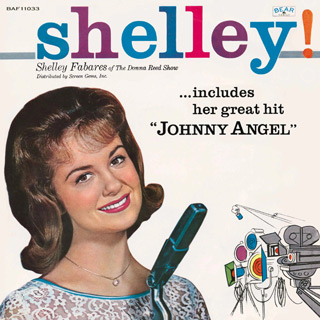
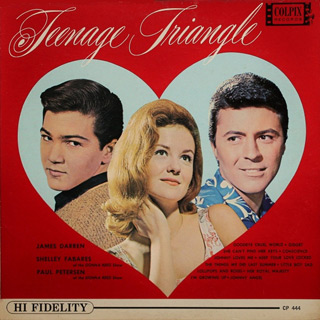
Cryptic Rock – Wow. That is a wild story. You paint such a vivid picture that one could feel the tension as well in that experience for you. What is so interesting is that it went into more than you did not expect. It also kind of went into you starring in music-based Rock-n-Roll based films starring alongside Elvis Presley and Peter Noone of Herman’s Hermits.
Shelley Fabares – Yes, they are. Those were wonderful experiences. I ended up doing three pictures with Elvis, and that was wonderful. We always knew, doing the pictures, that they weren’t good, but we had a wonderful time doing them. Getting to do three with him was amazing fun. We had a wonderful time doing that.
Peter Noone was one of the sweetest guys I ever had met. All the guys in the group were darling, really nice young men. I had to sing a few songs for that movie. If I remember correctly, Peter Noon and I did a song together, “Make Me Happy” in Hold On! (1966). Those were all fun experiences. The bottom line, all of them involved me singing. That was always the rock and a hard place that I came to.
I’ve been very lucky in the things that I’ve done and I’ve chosen to do. For years after that, both Paul and I went out on the road. At that time, they were doing songs for teenagers, kind of like The Dick Clark Show, but nothing was like Dick Clark, he was fabulous. That kind of show though where people would come on and they would do their song. All the kids who danced on American Bandstand were in the audience that they had. They sang and people became stars off of that show.
My favorite girl was Frani Giordano. I would faint if I met her today. We would go out and do these songs. I explained along the lines to people – that I would sing to the record, but I couldn’t actually sing. They’d go, “Uh-huh. Okay. Go out and sing.”
I would go out and I would sing to the record. There were a couple of acts that did that during that time. Somebody, at long last, put out a record, and I wish I could remember who it was who did the record, but the idea of the lyrics was, “Oh, I would love to do this song for you, but I didn’t bring my music with me.” I can sing to the records, but I can’t do the thing without the record player. Not all people, but a lot of people did do their songs to the record at that time. I sort of led the vanguard. (Laughs)
Because I did it, the lesson that I learned was that I was incredibly lucky; because of the experience that I had with, doing the show itself, and then with singing “Johnny Angel” to the record on The Donna Reed Show. They wrote a lovely script around my doing that. Years later, both Paul and I were out doing these record shows at local high schools. I couldn’t believe that I had to keep going and singing the song, but I did. Years later, I was working for, and with, the Alzheimer’s Association. So many people that I met doing that song would say, “Oh, I love that song. That was my favorite song growing up.”
I have remained stunned to this day by how many people have said that to me. It was very thrilling to have all of these people say, “Oh, I love that song.” You could hear people singing it. It had many ups to it and a few downs.
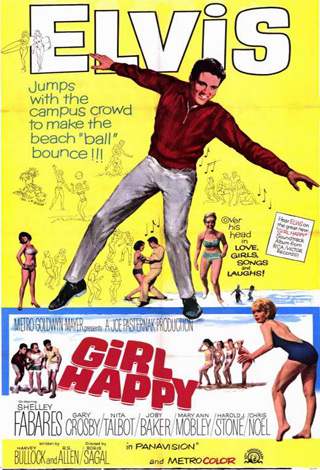
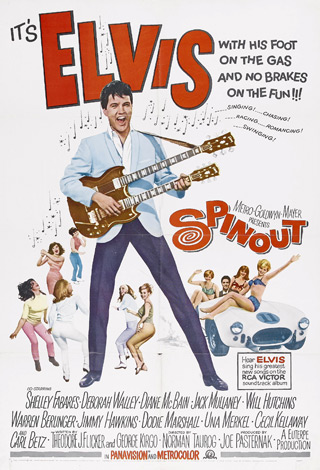
Cryptic Rock – It is really interesting to hear about it and how it went into other things. Now, moving past that period, you would go on to star in numerous shows, and TV shows throughout the ’70s and ’80s. Some were guest appearances, but others were regular appearances. You did have a large amount of work through the decades in television. Did you enjoy working in television?
Shelley Fabares – Yes. Thank you and I did enjoy it. I was very lucky, and I did work quite a bit. I loved it. This would be a double negative and not good, but I never was not nervous. That just stayed with me forever. The experiences were so great though. With all the people that I worked with; nobody ever became as close as we did on The Donna Reed Show.
I remember working with James Franciscus. He was doing a show called Mr. Novak at that time. I got a somewhat recurring role on that show, and I ended up doing three or four episodes. He was such a nice man, and it was great. I am very grateful for that experience. It led me to do some wonderful, very interesting shows. Just the experience itself and working with new people. It was great.
I grew up working in television. It was what was popular in the medium at that time. If you were lucky enough to get the part, you did television, and people did all the time. I have no bad memories of doing the different shows. I felt just extremely lucky that I was chosen to do a lot of those things.
Cryptic Rock – As stated, you did do quite a lot of them. That led up until the late ’90s when you were a part of Coach; which was a very long-running, successful series. This was a success you found later on in your career as well. What was that experience like?
Shelley Fabares – That was a remarkable experience for me. I hadn’t worked for several years. I still went out on interviews and stuff, but I just wasn’t cast in anything. This business is one that you always hear actors say, “Oh, I was sure I was never going to work again.” It’s true because sometimes you never work again. That’s historically correct. To be frightened that you would never work again made sense.
When I got to The Donna Reed Show, that was an amazing time. After I finished those shows, I started doing different shows. We made a television version of Meet Me in St. Louis, which was Judy Garland’s show. I loved doing that. I had a thrilling time.
When I would go on the interviews, even those experiences were difficult to go on and go into an office where there were like eight or nine grown-ups (as I called them at that time), they were very nice. There would be a few minutes of talk, “Hello, how are you?” Then they say, “Okay, go ahead.” You would read the scene, whatever it was for whatever show.
Usually, the casting director would be the person that you read with. Some were very good. Some were not so good. That didn’t matter, because the writers knew the script that they wrote. If the casting person wasn’t a great actor, they accepted that. On Coach, the person that I read with was the casting director, and she was a woman. I went and did four interviews for that series. I always did the scene with her; so, it was unusual to hear the script when Craig T. Nelson and I met and we did the scene together. I did have some great experiences working, as you said, later in my life. It’s sort of amazing to me still, the fact that I worked as much, and as I did as long as I did.
I did expect, like other actors say all the time, “Oh, I thought I would never work again.” That I kept on working was just an astonishing fact to me. I felt so lucky. Interestingly, before I got chosen to play Christine Armstrong in Coach, I went to the interview for it, and I read a couple of scenes. The show was created by Barry Kemp; a wonderful producer, writer, and director. I went on the interview, and I thought, “If I had to write a description of what I wanted to do, if I were going to do another series, it would be the description of Coach” The kind of person I played, the kind of the tone of the show, the kind of scripts that were done… it was just perfect as far as I was concerned.
I thought, “Well, that’s going to be the kiss of death for me; because I’ve read the script that I want to do, and I won’t get this one,” but I did. That was a fortuitous interview for me to go on. I owe so much of my working life to Barry Kemp for choosing me to do that show.
I ended up not working after that show again for a couple of years because I got very sick. I had liver problems and had to have a big operation. I didn’t work for several years, and I thought once again, “Well, I think I won’t work anymore.” Truth be told, I didn’t work very much after that. I will say nobody was asking me to work, but I had decided that if they did, I probably wouldn’t do it.
The energy that it takes to do any kind of television show or movie, any of those things, is very exhausting. That is especially true with television because it is very rapidly done. I don’t think I could handle working the way I used to work on Coach. It demands a lot of the actor or actress. You have to be sure you’re ready for the race if you get in.
It actually worked out well, because, not to make it dramatic sounding, I had several illnesses during the time that I was recuperating from the liver transplant. I thought, “Well, if anybody does call and ask me to do something, I can’t do it.” As I said, nobody was calling and asking me to do anything, so I didn’t have to worry about that.
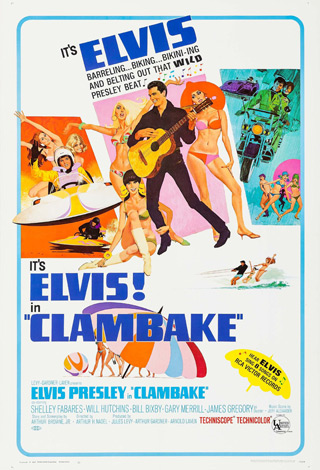
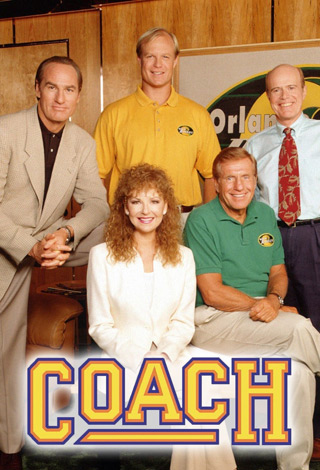
Cryptic Rock – You certainly did accomplish a lot in the years in which you were active. Being in good health is the most important thing.
Shelley Fabares – I agree, it absolutely is. When something serious comes along like that, and you’re really on the edge as to whether you’re going to live through it; they made it very clear that most people who had to have livers removed and have that serious of an operation don’t last… even during the process of the illness itself. It’s a very long recovery and takes different courses. Some people get well more quickly than others, and some people take a long time. Mine took a pretty long time to get past.
It does make you realize in bold relief that you’re so lucky that you’ve been healthy and able to work all these years and to keep having a life as well as doing the work. I keep saying it, but it’s true, I’ve been so lucky.
Cryptic Rock – Most certainly and certainly blessed in many regards. Looking at everything, your career has transcended decades. So much changed in our culture in America over those decades, and in television as well. Things are changing at a rapid pace even as we speak. What do you think are some of the biggest changes you saw and continue to see?
Shelley Fabares – Yes. Everything has changed. The business is a different animal than it was when I first started working. Obviously, the casts of people change. That’s not really what I’m talking about though, because different people always were in different shows. What was allowed to be shown on screen, you know Ozzie and Harriet were married in real life. Of course, I think everybody knows that. They weren’t allowed to be in a bed together though. They were married in real life, but on the show – no, two people could not be in bed together. That sort of affected a lot of things in shows; what could be shown and not.
The storylines are much different than they were when we were doing the shows that we’ve talked about today. I don’t take to change very easily. I never have, and by now, I probably never will. I found so many changes made the business different. It was hard to do some of the shows; I didn’t like a lot of the shows that I did. It’s a big business now, and it always was big, but it was smaller.
When you worked at Universal, everything was made there for a long time. They had, literally, a little schoolhouse built on the lot for kids who were working on shows. The little schoolhouse was a darling little one-room or two rooms and it looked like it was made for a set. They didn’t ever tell anybody that it was actually a real schoolhouse, and they built it for that. There were little bunnies that were very plentiful running all around where the schoolhouse was. You would come out from the schoolhouse and take a little break and five or six bunnies would run by you. Having bunnies working around you gave a different flavor to where we were working.
Cryptic Rock – Well, it sounds amazing. You experienced these changes from the inside; meaning you were working and you saw the changes and everything. As a consumer, you can see the changes in the decades through television and film, and with just culture in general. In our culture today… there seems to be a breakdown of communication.
It seems like people don’t sit down and have conversations anymore. As you said, you do not take well to change. Many are similar, but there are certain things that people have convictions about. That is being a good human being, being able to talk to people, communicating with people, not immediately condemning people, and hearing people out. It is just such a strange time.
Shelley Fabares – Yes. You said it very well. There are some wonderful shows done and wonderful movies made. Most of the kinds of shows that I was in, Family Comedy series, that were done over a period of time, I think they were better. Donna was a very courageous and determined person. She was determined that the show would be good and meaningful to people who were growing up at that time. It made a difference in our show.
Lucille Ball is another great example. She was a movie star first, and then she went into television; she became ginormous and the most amazing actress working. She and her husband, Desi Arnaz, bought the studio that she had been working for.
The shows then were simpler. I am not sure if it was simpler then, but it was just different than it is now. As much as I like the shows that are being done now, I prefer the ones that we did earlier. They were very family-oriented. I still have people come up and ask me, are you Mary from The Donna Reed Show? I’m amazed how many people remember the series, and we remember it very fondly.
Isn’t it interesting what we find out about ourselves when we think we can’t do something? When circumstances become the fact that you do those things, you find different parts of yourself that you didn’t know that you had. It’s a great learning lesson.
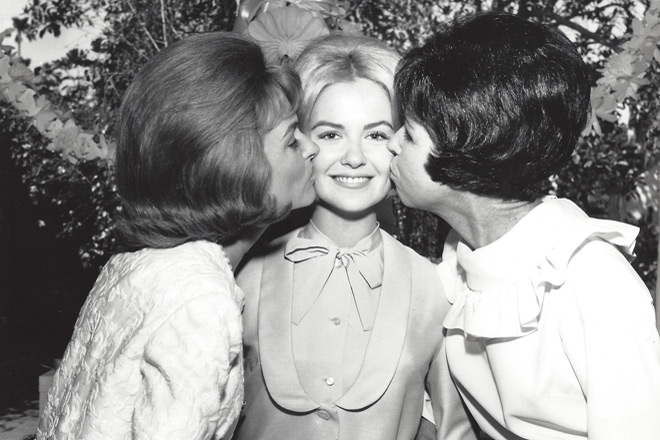
Cryptic Rock – Agreed. Just listening to you speak about it, it almost seems with all these experiences you have had, as much of it was destiny for you.
Shelley Fabares – I don’t think in those terms of destiny, but I think you’re right. Yes, I have to look at the length of time I’ve been working and how lucky I’ve been in the shows that I’ve been hired for. When I get to the end of my life, I know that I’ll look back on all of these times and that there was some force in play, whether it be destiny or whatever. I do like it being referred to as destiny… it sounds very nice. I think I will see that as part of what I lucked into.
Cryptic Rock – The universe has a very interesting way of moving; certain things we just cannot explain. That is just the way it is.
Shelley Fabares – Yes, that’s right. That explains a lot of things that you can’t explain. It just does happen.
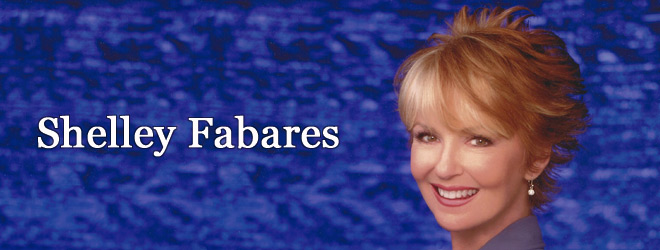
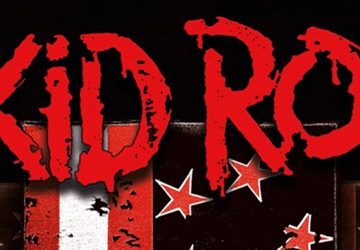
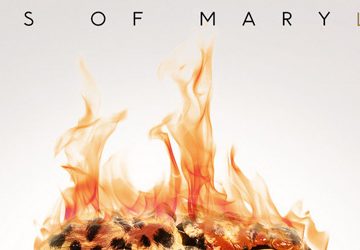


No comment